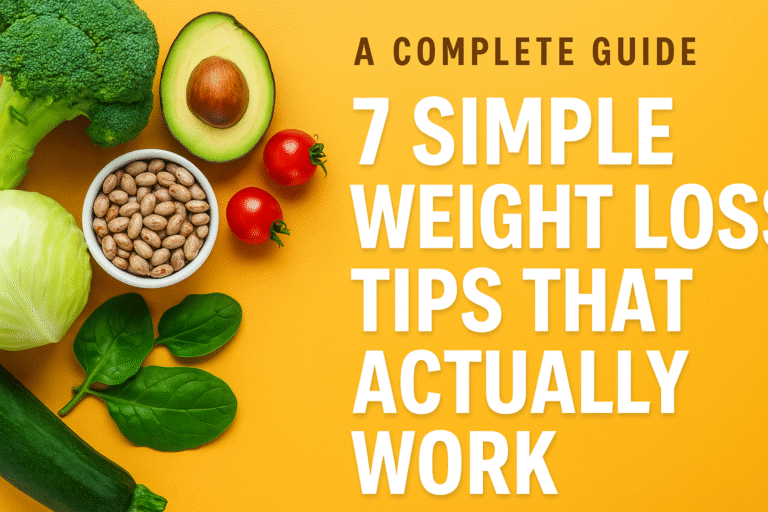

In today’s fast-paced world, unhealthy eating habits have become a norm. From fast food to sugar-loaded beverages, our lifestyle choices often neglect the body’s nutritional needs. A healthy diet for healthy life is not just about eating less or avoiding junk food—it’s about providing the body with essential nutrients in the right proportions to ensure optimal health, energy, and longevity.
Why is a Healthy Diet Important?
1. Provides Essential Nutrients
Your body needs proteins, carbohydrates, fats, vitamins, minerals, and fiber to function efficiently. A healthy diet ensures you get these nutrients from natural and balanced sources.
2. Prevents Lifestyle Diseases
Eating well helps lower the risk of chronic illnesses like heart disease, obesity, high blood pressure, and type 2 diabetes.
3. Boosts Immunity
Vitamins C, E, D, zinc, and antioxidants in a healthy diet strengthen your immune system to fight infections.
4. Improves Mental Health
Nutrient-rich foods improve mood, reduce stress, and support better brain function.
5. Supports Healthy Weight
A balanced diet helps you maintain an ideal weight without extreme dieting or calorie restrictions.
6. Increases Life Expectancy
Good nutrition contributes to better health, reduced illness risk, and a longer, more active life.
Key Components of a Healthy Diet
A truly healthy diet includes a mix of all major food groups in balanced proportions.
1. Carbohydrates – The Body’s Main Energy Source
- Function: Provide fuel for daily activities.
- Healthy Sources: Whole grains, oats, brown rice, sweet potatoes, quinoa, fruits, and vegetables.
2. Proteins – The Building Blocks of the Body
- Function: Build and repair tissues, support muscles, and aid in enzyme and hormone production.
- Healthy Sources: Eggs, chicken, fish, lentils, beans, tofu, soy products, milk, and yogurt.
3. Healthy Fats – Essential for Hormones & Brain Health
- Function: Support cell structure, hormone balance, and nutrient absorption.
- Healthy Sources: Olive oil, avocados, nuts (almonds, walnuts), seeds (flax, chia), and fatty fish.
4. Vitamins and Minerals – Micronutrients for Overall Wellness
- Function: Strengthen immunity, improve skin and bone health, and regulate body processes.
- Healthy Sources: Leafy greens, colorful vegetables, dairy products, fruits, seeds, and lean meat.
5. Fiber – For a Healthy Digestive System
- Function: Improves digestion, prevents constipation, and helps control blood sugar levels.
- Healthy Sources: Whole grains, legumes, fruits, vegetables, chia seeds, and oats.
6. Water – The Most Vital Nutrient
- Function: Maintains hydration, supports digestion, and flushes toxins.
- Daily Intake: At least 2–3 liters a day.
Daily Healthy Diet Chart
Here’s a sample balanced diet plan you can follow:
| Time of Day | Meal Type | Healthy Options |
|---|---|---|
| Early Morning | Detox Drink | Warm water with lemon, or fenugreek water |
| Breakfast | High Protein + Carbs | Oats with milk & fruits, vegetable upma, whole wheat toast with peanut butter |
| Mid-Morning Snack | Light Snack | Apple, banana, or seasonal fruit + handful of almonds or walnuts |
| Lunch | Balanced Meal | 2 whole wheat chapatis, lentils, vegetable curry, and salad |
| Evening Snack | Energy Boost | Green tea with sprouts or roasted chickpeas |
| Dinner | Light Meal | Vegetable soup, khichdi, or dalia with curd |
| Before Bed | Relaxing Drink | A glass of warm milk or herbal tea |
Benefits of a Healthy Diet
- Increases Energy Levels – Keeps you active throughout the day.
- Supports Better Digestion – Reduces bloating, constipation, and acidity.
- Controls Weight – Helps to weight loss an ideal body weight naturally.
- Improves Skin and Hair Health – Promotes glowing skin and stronger hair.
- Enhances Mood and Focus – Reduces stress and sharpens concentration.
- Promotes Better Sleep – Aids in deeper and more restful sleep.
Tips to Maintain a Healthy Diet
- Avoid junk and processed foods.
- Limit sugar and salt intake.
- Reduce fried and oily food consumption.
- Eat fresh and seasonal fruits and vegetables.
- Stay hydrated throughout the day.
- Practice mindful eating—chew slowly and enjoy your food.
Common Myths About a Healthy Diet
- Myth 1: Healthy eating is expensive.
Reality: Simple, local, and seasonal foods can be both healthy and affordable. - Myth 2: You need to completely avoid fats.
Reality: Healthy fats are essential for brain and hormone health. - Myth 3: Skipping meals helps in weight loss.
Reality: Skipping meals can slow metabolism and cause weight gain.
Conclusion
A healthy diet is not a short-term goal—it’s a lifelong commitment to nourishing your body. By including balanced nutrients, controlling portion sizes, and avoiding harmful foods, you can enjoy a healthier, more energetic, and disease-free life. Remember, your diet shapes your health, and investing in the right nutrition today will pay off for the rest of your life.
1. What is a healthy diet?
A healthy diet is a balanced way of eating that provides your body with essential nutrients—carbohydrates, proteins, fats, vitamins, minerals, and fiber—in the right proportions to support overall health, energy, and disease prevention.
2. Why is a healthy diet important?
A healthy diet helps maintain a healthy weight, boosts immunity, improves digestion, supports mental health, and lowers the risk of chronic diseases such as diabetes, heart disease, and high blood pressure.
3. What are the key components of a healthy diet?
Whole grains (brown rice, oats, quinoa), lean proteins (fish, chicken, beans), healthy fats (nuts, seeds, olive oil), fruits and vegetables, and adequate water intake.
4. How many meals should I eat in a day?
Most nutritionists recommend 3 main meals (breakfast, lunch, dinner) and 2–3 small healthy snacks in between to maintain energy levels and prevent overeating.
5. Can I lose weight with a healthy diet?
Yes. A balanced diet with the right calorie intake, combined with regular exercise, can help you lose fat and maintain a healthy weight naturally without crash dieting.
6. What foods should I avoid for a healthy diet?
Processed foods, sugary drinks, deep-fried snacks, excess salt and sugar, and refined carbs like white bread and pastries.
7. How much water should I drink daily?
Adults should drink 2–3 liters of water daily, depending on activity level, climate, and health conditions.
8. Is it necessary to take supplements with a healthy diet?
Not always. If your diet includes all essential nutrients, supplements may not be necessary. However, in cases of deficiency (like Vitamin D or B12), supplements can be recommended by a doctor.
9. Can I follow a healthy diet on a budget?
Yes. Choose seasonal fruits and vegetables, buy whole grains in bulk, use affordable protein sources like lentils, eggs, and beans, and cook at home instead of eating out.
10. How do I start eating healthy?
Replace sugary drinks with water or herbal tea, add more vegetables and fruits to every meal, switch from refined grains to whole grains, limit processed and junk food, and plan your meals in advance.







3 thoughts on “Healthy Diet: Why It’s Important and What It Includes”